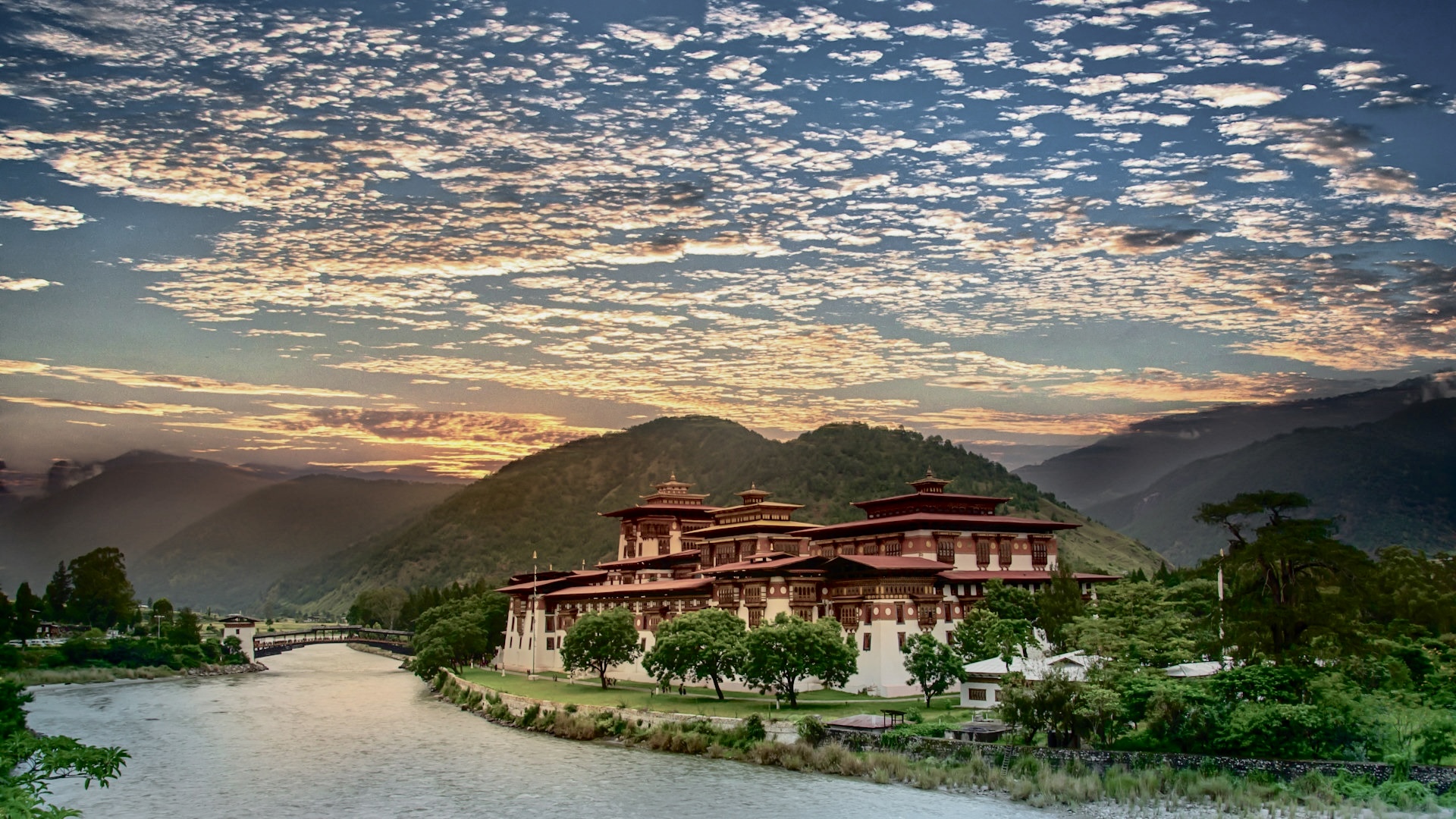Bhutan has a rich and unique culture that is deeply rooted in its history, religion, and the values of Gross National Happiness. Here are some key aspects of Bhutanese culture and traditions:
Religion
Bhutan is predominantly Buddhist, and the state religion is Vajrayana Buddhism, a form of Mahayana Buddhism. It plays a central role in the daily lives of the Bhutanese people, and you’ll find numerous monasteries and dzongs (fortress-monasteries) across the country. The Bhutanese king holds the title of “Druk Gyalpo” (Dragon King), symbolizing the country’s deep connection to the Drukpa Kagyu school of Buddhism.
Dress
Bhutanese traditional attire is known as “kira” for women and “gho” for men. These garments are made of colorful and intricately woven fabrics. Wearing traditional attire is not just a cultural practice but also a requirement in many formal and official settings.
Architecture
Dzongs are prominent architectural features in Bhutan. These fortress-monasteries serve both as religious and administrative centers. They are characterized by their massive white walls, red roofs, and intricate woodwork. Traditional Bhutanese houses also have a unique architectural style, with elaborately painted windows and eaves.
Language
The official language of Bhutan is Dzongkha. English is also widely spoken and is the medium of instruction in schools. Bhutan has a rich oral tradition, and traditional stories, songs, and legends are an integral part of its cultural heritage.
Cuisine
Bhutanese cuisine is known for its use of spices, particularly red and green chilies. A popular dish is “ema datshi,” a spicy cheese and chili stew. Red rice is a staple food, and buckwheat noodles and dumplings are also commonly consumed.
Arts and Crafts
Bhutanese arts and crafts are highly regarded and include intricate woodwork, painting, weaving, and sculpture. The country is famous for its “thangka” paintings, which depict Buddhist deities and scenes. Bhutan is also known for its traditional mask dances and the creation of beautiful handwoven textiles.
Environmental Conservation
Bhutan is committed to environmental conservation and has a strong policy of protecting its natural resources. The concept of Gross National Happiness takes into account the well-being of the environment alongside the well-being of the people.
Traditional Bhutanese Games
Archery is the national sport of Bhutan, and traditional archery competitions are popular. Bhutanese archery tournaments often feature singing, dancing, and lively celebrations.
Bhutan’s culture and traditions are deeply intertwined with its values, and the country has taken measures to preserve and promote its unique cultural heritage while also embracing modernization and globalization. Visitors to Bhutan can experience the richness of this culture through its festivals, architecture, cuisine, and warm hospitality.


